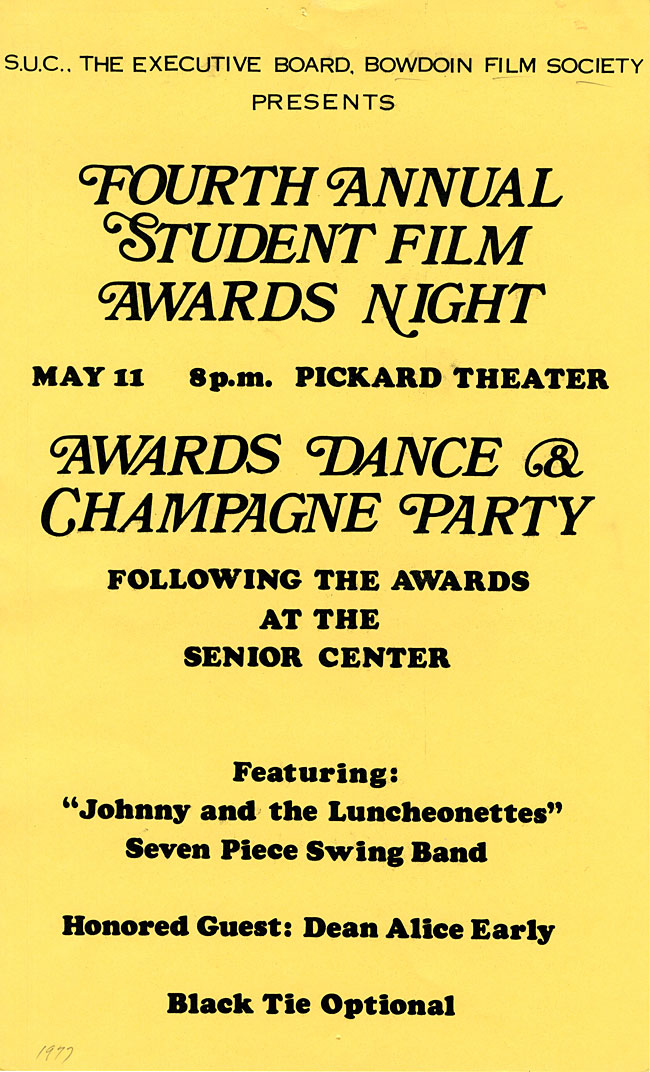The implementation of coeducation at Bowdoin College undoubtedly changed the social scene at the time, challenging long held fraternity traditions and practices. Coeducation also changed Bowdoin academically. The presence of women faculty at Bowdoin created new possibilities for academic pursuits. Professor Barbara Kaster came to Bowdoin with a position in the English Department. She accepted the position on the condition that she be allowed to teach Film as well. Kaster taught Film History and made filmmaking a mandatory part of the course. The Bowdoin Film Society (BFS), founded in 1974, grew out of Kaster’s Film History class.
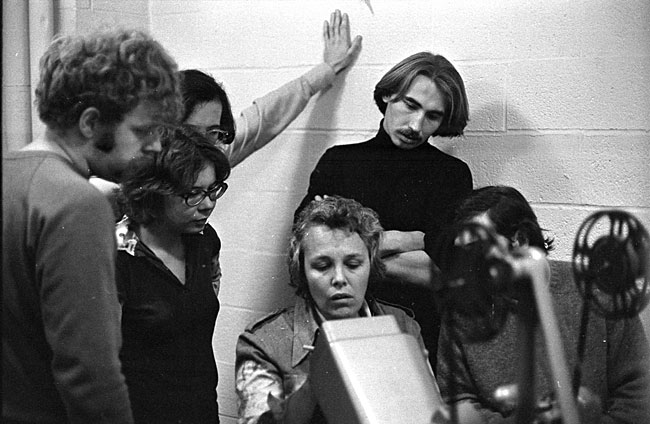
Student films were screened in the spring during the Annual Student Film Awards Night. The BFS co-sponsored the event and awarded an Oscar-replica statue to the Best Film. The event was by no means small. Some students dressed to the nines, some even renting a limo for the event. In a phone interview, Kaster recalls that tickets would be made available at a given hour and would sell out within fifteen minutes. The campus support for student filmmakers was substantial.
The flyer [DocumentAG, 42.1] announces the Fourth Annual Student Film Awards Night held in 1977. Current filmmaker, Liza McElaney ’77, made her first film, Pattern Grace, in Kaster’s Film History course and won Best Film at the student film festival her senior year [DocumentAG, 42.2]. In 1978 and 1979 the Best Film award again went to groups with women on them [DocumentAG, 42.3 and DocumentAG, 42.4]
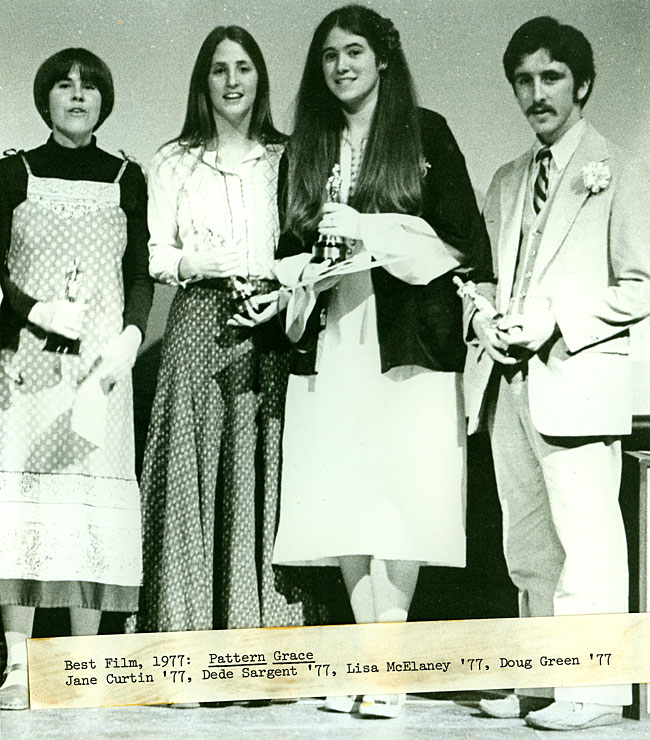
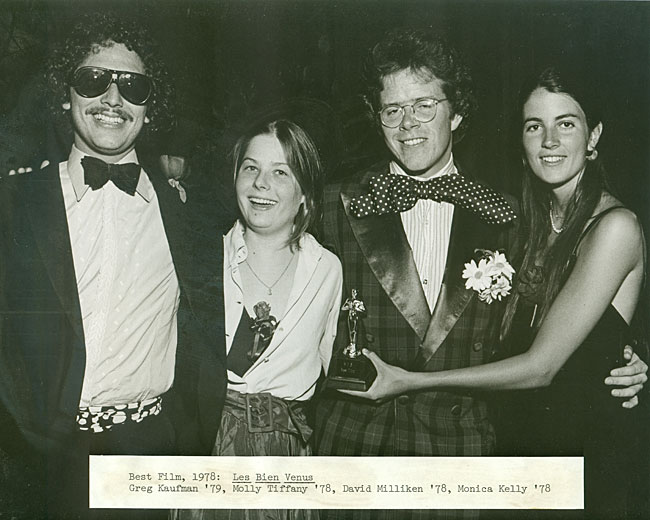
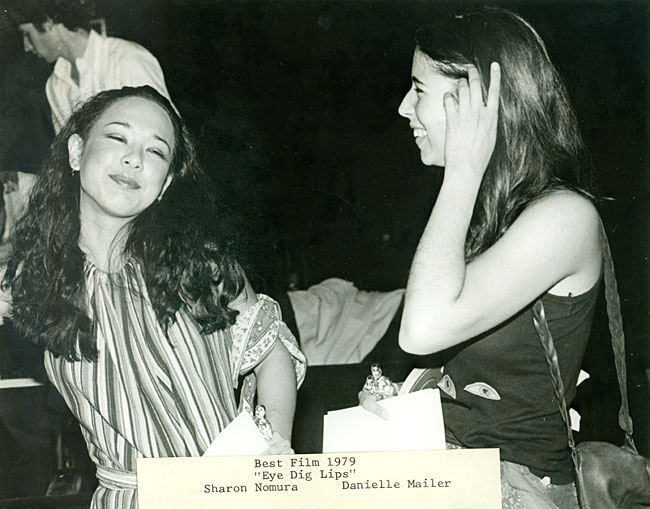
The BFS allowed women to claim a space on campus where male membership did not predate their own. Kaster encouraged students, male and female, to take what they learned in the classroom and engage with the material in an interactive manner. Also, as one of the few female faculty members at Bowdoin in the early 1970’s, Kaster served as a mentor and role model for female students. She and the BFS celebrated student achievements in a positive way, encouraging some women to pursue film as a career. [DocumentAG, 42.5]
